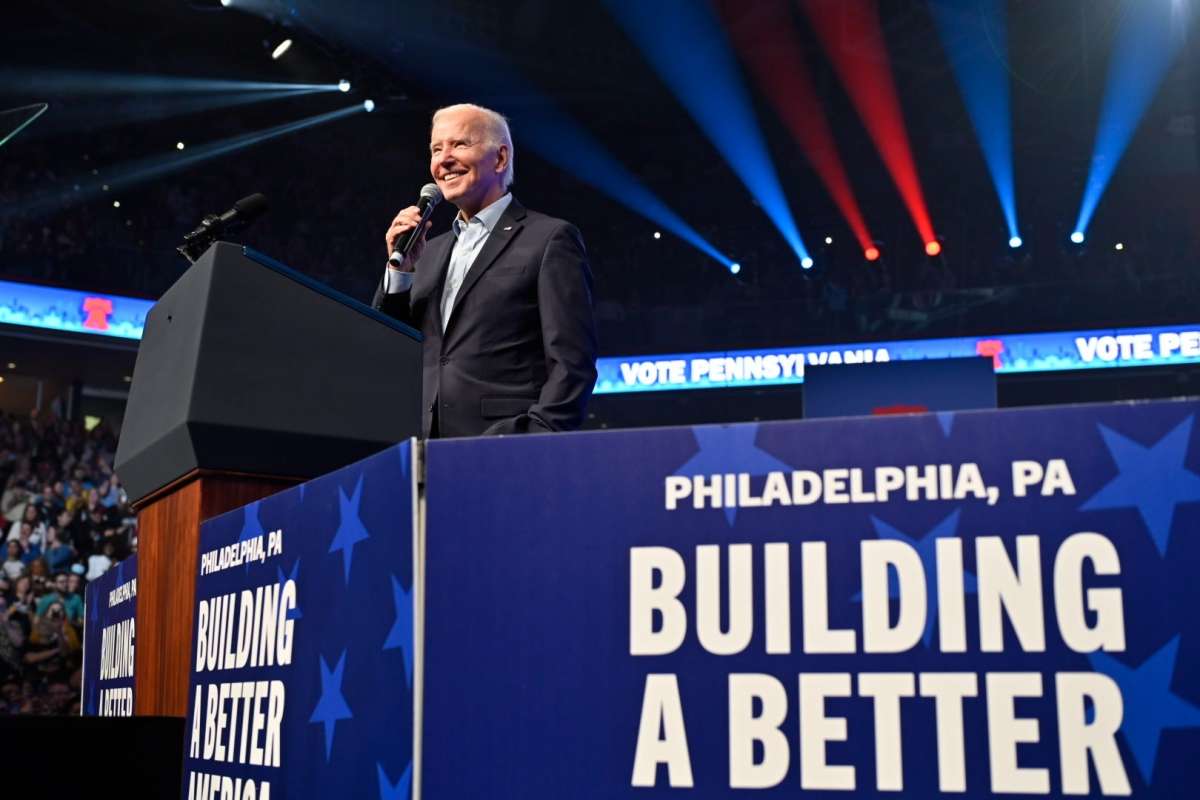The summit will be the biggest international gathering in Washington since before the start of the Covid-19 pandemic…reports Asian Lite News
President Joe Biden is set to play host to dozens of African leaders in Washington this week as the White House looks to narrow a gaping trust gap with Africa — one that has grown wider over years of frustration about America’s commitment to the continent.
In the lead-up to the three-day U.S-Africa Leaders Summit that begins Tuesday, Biden administration officials played down their increasing concern about the clout of China and Russia in Africa, which is home to more than 1.3 billion people. Instead, administration officials tried to put the focus on their efforts to improve cooperation with African leaders.
“This summit is an opportunity to deepen the many partnerships we have on the African continent,” White House press secretary Karine Jean-Pierre said when asked about the shadow that China and Russia cast on the meetings. “We will focus on our efforts to strengthen these partnerships across a wide range of sectors spanning from businesses to health to peace and security, but our focus will be on Africa next week.”
To that end, White House officials said that “major deliverables and initiatives” — diplomatic speak for big announcements — will be peppered throughout the meetings. The White House previewed one major summit announcement on Friday, saying that Biden would use the gathering to declare his support for adding the African Union as a permanent member of the Group of 20 nations.
The summit will be the biggest international gathering in Washington since before the start of the COVID-19 pandemic. Local officials are warning residents to brace for road blocks and intensified security as 49 invited heads of states and leaders — and Biden — whiz around the city.
Talks are expected to center on the coronavirus, climate change, the impact of Russia’s invasion of Ukraine on Africa, trade and more, according to White House officials. Biden is set to deliver remarks at a U.S.-Africa business forum, hold small group meetings with leaders, host a leaders’ dinner at the White House and take part in other sessions with leaders during the gathering.
Biden has spent much of his first two years in office trying to assuage doubters on the international stage about American leadership after four years of Donald Trump’s “America First” foreign policy. With this summit — a follow-up to the first such gathering held eight years ago by President Barack Obama — Biden has an opportunity to assuage concerns in Africa about whether the U.S. is serious about tending to the relationship.
Biden’s effort to draw African nations closer to the U.S. comes at a complicated moment, as his administration has made plain that it believes that Chinese and Russian activity in Africa is a serious concern to U.S. and African interests.
In its sub-Saharan Africa strategy unveiled in August, the Biden administration warned that China, which has pumped billions into African energy, infrastructure and other projects, sees the region as an arena where Beijing can “challenge the rules-based international order, advance its own narrow commercial and geopolitical interests, undermine transparency and openness.”
The administration also argues that Russia, the preeminent arms dealer in Africa, views the continent as a permissive environment for Kremlin-connected oligarchs and private military companies to focus on fomenting instability for their own strategic and financial benefit.
Still, administration officials are emphasizing that concerns about China and Russia will not be central to the talks.
“The United States prioritizes our relationship with Africa for the sake of our mutual interests and our partnership in dealing with global challenges,” Molly Phee, assistant secretary of state for African affairs, told reporters before the summit. “We are very conscious, again, of the Cold War history, we’re conscious, again, of the deleterious impact of colonialism on Africa, and we studiously seek to avoid repeating some of the mistakes of those earlier eras.”
The administration has been disappointed that much of the continent has declined to follow the U.S. in condemning the Russian invasion of Ukraine, but Biden is not expected to dwell on differences publicly.
The president is expected to participate with leaders in a session on promoting food security and food systems resilience. Africa has been disproportionately impacted by the global rise in food prices that has been caused in part by the drop in shipments from major grain exporter Ukraine.
Four countries that were suspended from the African Union — Guinea, Sudan, Mali and Burkina Faso— were not invited to the summit because coups in those nations led to unconstitutional changes in power. The White House also did not invite the East African nation of Eritrea; Washington does not have full diplomatic relations with the country.
Biden’s decision to invite several leaders to the summit who have questionable records on human rights and democracy is looming large ahead of the gathering.
ALSO READ-Biden to call for African Union to permanently join G20

Leave a Reply